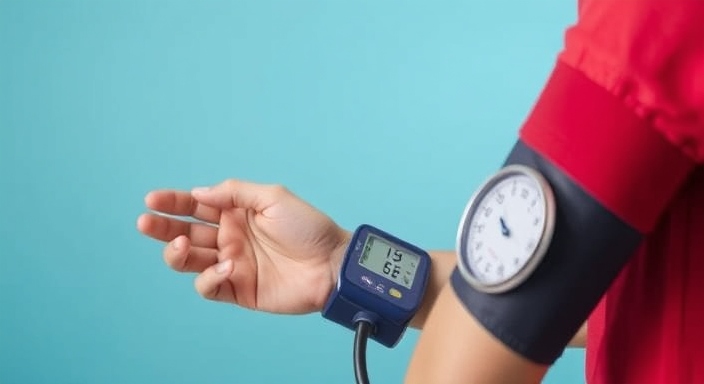High blood pressure, or hypertension, often goes unnoticed until it causes serious health complications. It is often referred to as the “silent killer” because many people do not experience noticeable symptoms until the condition becomes severe. Understanding the symptoms associated with high blood pressure can help you seek medical attention early, reducing the risk of serious health issues. Here are the top 10 symptoms of high blood pressure to watch for:

1. Headaches
Severe headaches can be a sign of hypertension, particularly when they occur suddenly and intensely. These headaches may feel different from regular tension headaches, and if they persist, it’s essential to consult a healthcare professional.
2. Dizziness or Lightheadedness
Experiencing dizziness or a sense of lightheadedness can indicate high blood pressure. This symptom may be more pronounced when standing up quickly, which can occur if blood pressure fluctuates.
3. Nosebleeds
While nosebleeds can occur for various reasons, frequent nosebleeds can be a symptom of hypertension. If you notice an increase in the frequency of nosebleeds, it’s worth discussing with a doctor.
4. Shortness of Breath
Feeling short of breath during regular activities may be a sign of high blood pressure. This symptom can indicate that the heart is working harder to pump blood, which can strain the cardiovascular system.
5. Chest Pain
Chest pain should always be taken seriously. It can indicate various health issues, including high blood pressure. If you experience chest pain, seek medical attention immediately.
6. Fatigue
Chronic fatigue or a general feeling of tiredness can be a symptom of high blood pressure. The body may become exhausted from the extra strain on the heart and blood vessels.
7. Blurred Vision
Vision changes, such as blurred or double vision, can occur when high blood pressure affects the blood vessels in the eyes. If you experience sudden changes in vision, contact a healthcare provider.
8. Palpitations
A sensation of a racing or pounding heartbeat can indicate hypertension. This symptom may feel like your heart is skipping a beat or beating too quickly.
9. Blood in Urine
The presence of blood in urine, known as hematuria, can be a serious symptom linked to high blood pressure. It may indicate damage to the kidneys and requires immediate medical evaluation.
10. Pounding in the Chest, Neck, or Ears
Some individuals with high blood pressure report a sensation of pounding in their chest, neck, or ears. This feeling can be uncomfortable and may be accompanied by other symptoms.
Conclusion
High blood pressure can have serious long-term effects on your health, including heart disease, stroke, and kidney damage. It’s crucial to monitor your blood pressure regularly and be aware of any symptoms that may arise. If you experience any of the symptoms listed above, especially chest pain or severe headaches, seek medical advice promptly. Early detection and management of high blood pressure can significantly improve your overall health and well-being.
Tips for Maintaining Healthy Blood Pressure
- Regular Check-ups: Get your blood pressure checked at least once a year.
- Healthy Diet: Adopt a balanced diet rich in fruits, vegetables, whole grains, and lean proteins.
- Regular Exercise: Aim for at least 150 minutes of moderate-intensity exercise each week.
- Limit Alcohol and Caffeine: Reduce your intake of alcohol and caffeine, as they can elevate blood pressure.
- Manage Stress: Practice stress-reducing techniques such as meditation, yoga, or deep breathing exercises.
By taking these steps, you can help maintain healthy blood pressure and improve your overall health. If you have any concerns about your blood pressure or related symptoms, don’t hesitate to consult your healthcare provider.
